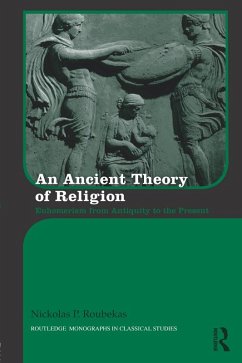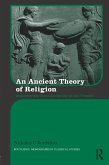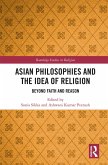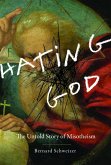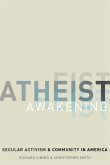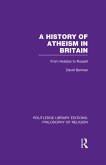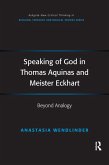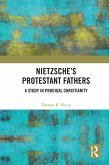Dieser Download kann aus rechtlichen Gründen nur mit Rechnungsadresse in A, B, BG, CY, CZ, D, DK, EW, E, FIN, F, GR, HR, H, IRL, I, LT, L, LR, M, NL, PL, P, R, S, SLO, SK ausgeliefert werden.
- Juraj Franek, Journal of Cognitive Historiography
"Nickolas Roubekas rediscovers the long shadow cast by Euhemerus of Messene over the history of conceptualizing the divine from Hellenistic times to the present. While building on classical studies on Euhemerus and his reception, Roubekas presents scholarship on religion with a timely appropriation of Euhemerus and the discourse he elicited on the origins of gods and the divine for the contemporary study of religion. This study of Euhemerus provides the necessary groundworkfor retrieving the discursive processes of manufacturing divinity that lie at the foundation of the history of European Christianity."
- Professor Gerhard van den Heever, University of South Africa
"This book provides an important contribution to the understanding of Euhemerism ... Nickolas Roubekas provides a rigorous study both of Euhemerism in its original sense, and the cultural history of its reception, for an audience of both Classicists and students of religion ... 'Whose Euhemerism?' is the right question to pose, as the conclusion states (p. 182). "
-Miguel Herrero de Jáuregui, Acta Classica
"This short and focused book is recommended for historians of religion who are interested in the premodern roots of the compara>tive category of religion as it was deployed in the early days of the discipline."
-Brian Collins, Religious Studies Review, Rice University

